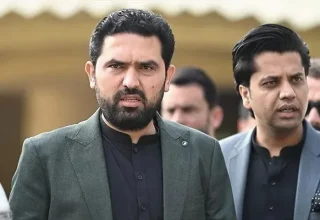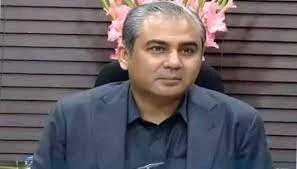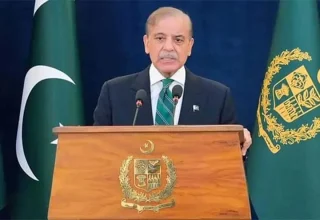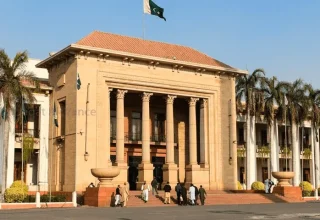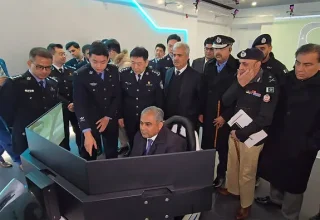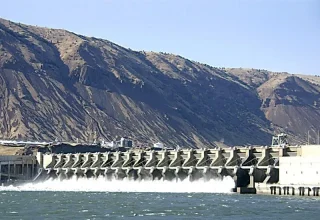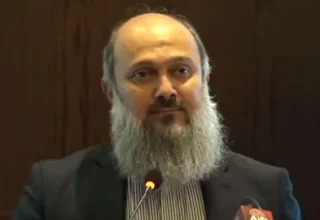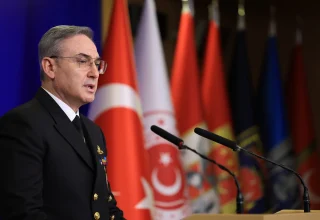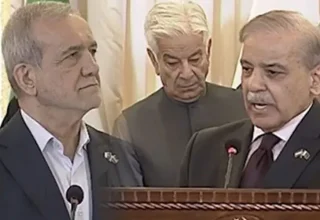
Prime Minister Shehbaz Sharif on Sunday reaffirmed Pakistan’s support for Iran’s nuclear programme for peaceful purposes, while strongly condemning Israel’s “unjustified aggression” against Tehran and atrocities in Gaza.
Speaking at a joint press conference alongside Iranian President Dr Masoud Pezeshkian in Islamabad, the prime minister praised Iran’s “strong and courageous” response to Israeli actions, describing it as a “brilliant victory” under the leadership of Supreme Leader Ayatollah Ali Khamenei and President Pezeshkian.
“A true friend is one who stands with you in difficult times,” Mr Shehbaz said, noting that Pakistan and Iran share the same stance on terrorism and remain committed to enhancing security along their shared border.
He stressed that both nations would work to achieve the target of $10 billion in bilateral trade “soon”, up from the current $2 billion.
Turning to Gaza, the prime minister called for an immediate ceasefire and urged the world to unite for peace. “Innocent children are being martyred in Palestine. The Islamic and civilised world must raise its voice against these atrocities,” he said, adding that the situation in occupied Kashmir was “no different from Gaza”, with the valley “red with the blood of oppressed Kashmiris”.
Mr Shehbaz also thanked Iran for voicing support for the rights of Kashmiris and condemned Israel’s alleged use of food as a weapon.
‘Muslim unity inevitable’
President Pezeshkian, in his remarks, described Pakistan as Iran’s “second home” and thanked Pakistanis for their solidarity during recent tensions with Israel. He said Muslim unity was “inevitable” in the current era and stressed that suppressing terrorism along the Pak-Iran border was a shared priority.
“We want to raise our trade volume with Pakistan to $10 billion,” he said, adding that Israeli atrocities in Gaza were “unacceptable” and that the Islamic world must “raise an effective voice” to protect Palestinian rights.
The Iranian leader extended an invitation to Prime Minister Shehbaz to visit Iran.
Agreements and MoUs signed
Earlier in the day, Pakistan and Iran exchanged a series of agreements and memorandums of understanding aimed at boosting cooperation in diverse sectors.
The signings — witnessed by PM Shehbaz and President Pezeshkian — covered areas including trade, cultural exchanges, maritime cooperation, environmental protection, air services, and law and justice.
List of signed agreements and MoUs
-
Cooperation in Plant Protection and Quarantine
– To facilitate safe trade of agricultural goods and improve phytosanitary standards. -
Joint Use of Mirjaveh-Taftan Border Gate
– Aimed at enhancing border management and cross-border movement. -
Scientific, Technological, and Innovation Collaboration
– To promote joint research, innovation, and academic exchange. -
Information and Communication Technology (ICT) Cooperation
– Focused on strengthening collaboration in IT, digital infrastructure, and cyber development. -
Cultural, Artistic, Tourism, Youth, and Media Exchange Programs
– To encourage people-to-people connections, joint cultural projects, and youth engagement. -
Cooperation in Meteorology, Climatology, and Hazard Management
– For sharing data and technology to tackle climate-related challenges. -
Maritime Safety and Firefighting MoU
– Strengthening capabilities in maritime emergency response and port safety. -
Judicial Assistance in Criminal Matters
– To enhance legal cooperation, particularly in cross-border crime investigations. -
Supplemental MoU to the 2013 Air Services Agreement
– Updated aviation framework for better connectivity and regulatory alignment. -
Recognition of Product Certification, Inspection, and Testing Standards
– To ease trade barriers through mutual recognition of quality assurance protocols. -
Tourism Cooperation Plan for 2025–2027
– Structured plan to boost bilateral tourism, heritage promotion, and investment in hospitality. -
Joint Ministerial Statement on Finalizing a Free Trade Agreement (FTA)
– Political commitment from both sides to expedite and conclude the long-awaited FTA negotiations.
According to officials, these pacts are expected to pave the way for broader economic engagement, infrastructure development along the border, and greater regional connectivity.
President Pezeshkian’s visit marks another high-level engagement between the two neighbours in less than a year, following former president Ebrahim Raisi’s visit in April 2024.


